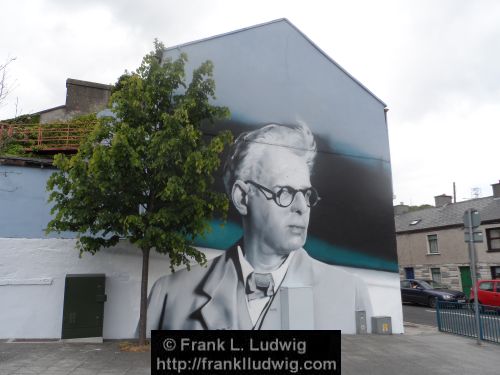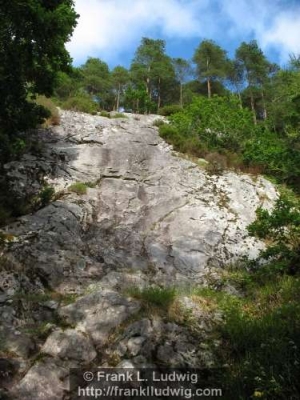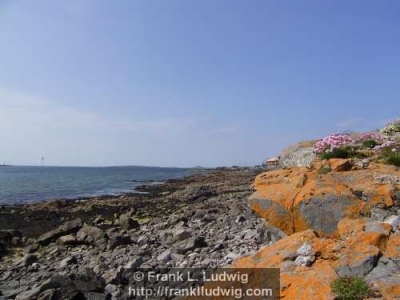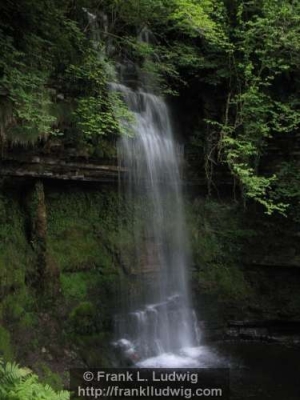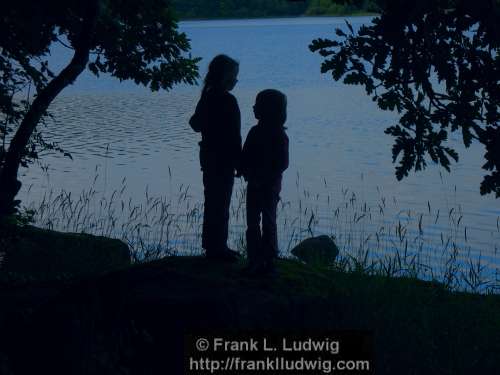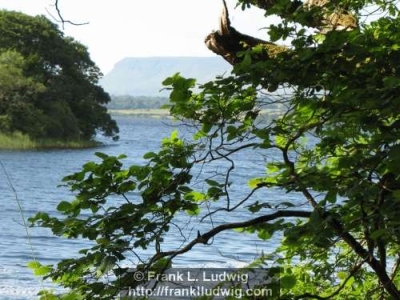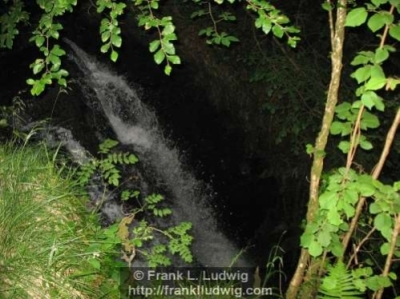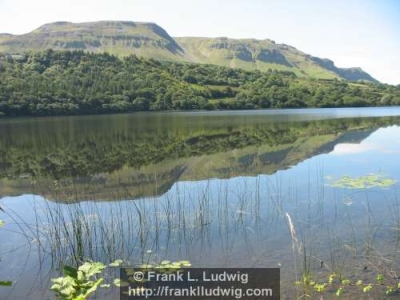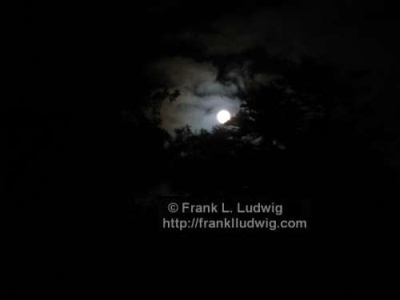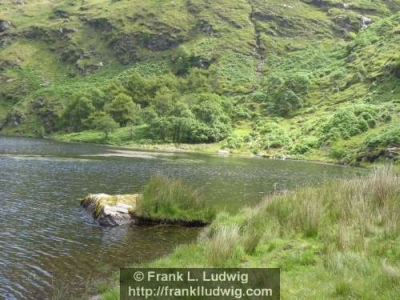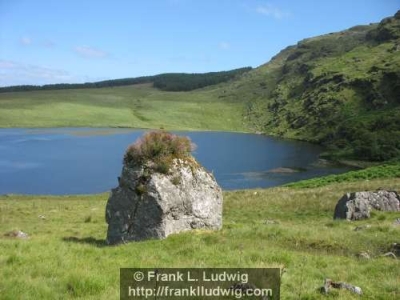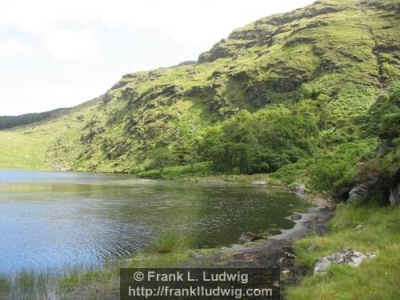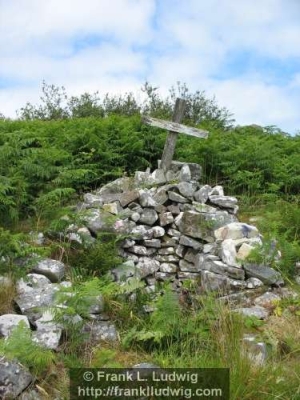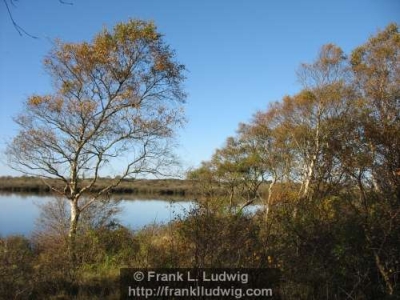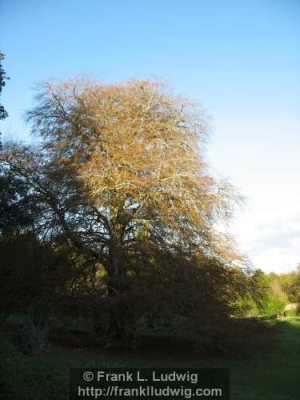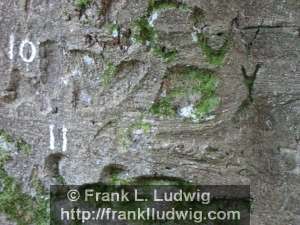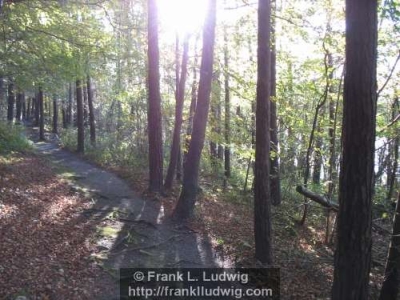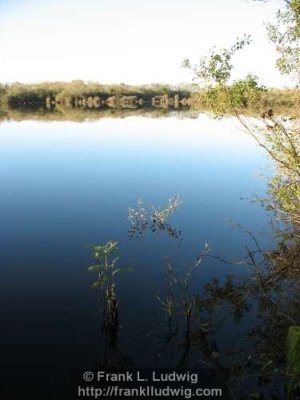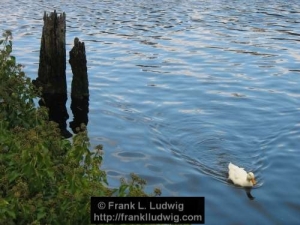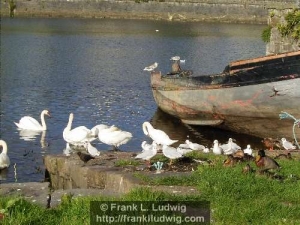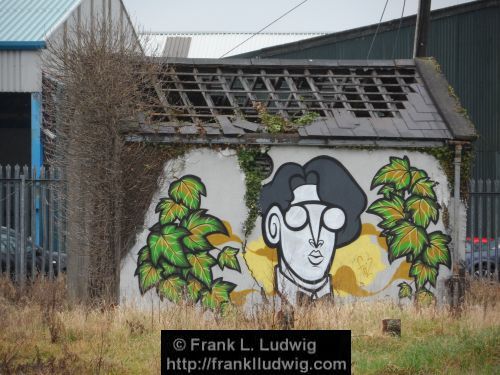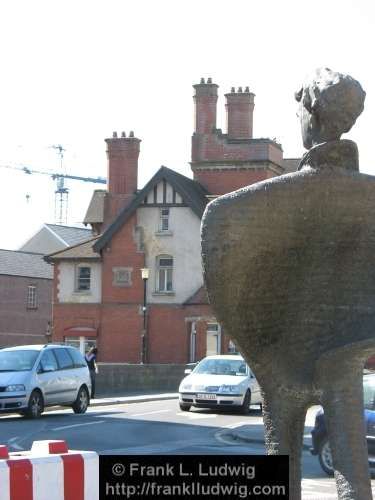- The Sligo Poems -
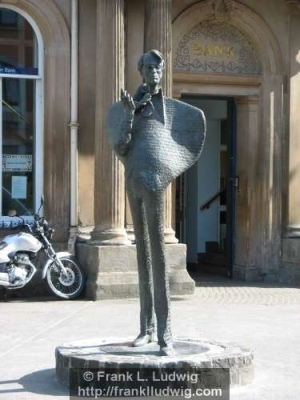 

|
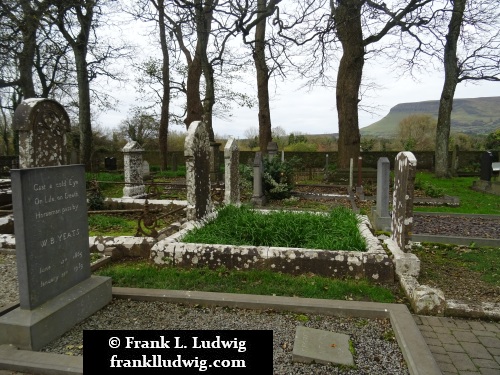 

|
Many of W. B. Yeats' works have been inspired by places in and around Sligo. While a good deal of these locations can easily be checked out on the internet, such as Benbulben and Drumcliffe, it seems impossible to find information (let alone images) of others, such as the Hawk's Well and Heart Lake.
With this page I give his readers the opportunity to visualise the locations that have made their way into literature, though not necessarily onto the map.
Clicking on
 will bring you to a gallery with more images of the same area, including a larger version of the corresponding photograph.
will bring you to a gallery with more images of the same area, including a larger version of the corresponding photograph.
Red Hanrahan's Song about Ireland
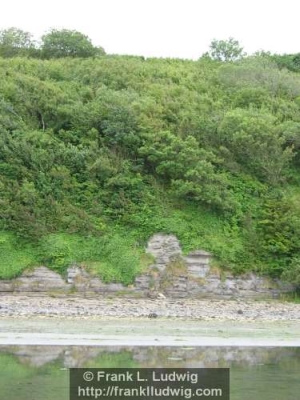  
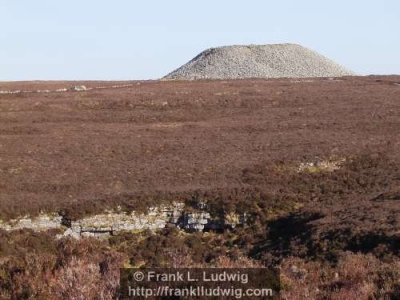  
|
Under a bitter black wind that blows from the left hand; Our courage breaks like an old tree in a black wind and dies, But we have hidden in our hearts the flame out of the eyes Of Cathleen, the daughter of Houlihan. The wind has bundled up the clouds high over Knock-narea, And thrown the thunder on the stones for all that Maeve can say. Angers that are like noisy clouds have set our hearts abeat; But we have all bent low and low and kissed the quiet feet Of Cathleen, the daughter of Houlihan. The yellow pool has overflowed high up on Clooth-na-Bare, For the wet winds are blowing out of the clinging air; Like heavy flooded waters our bodies and our blood; But purer than a tall candle before the Holy Rood Is Cathleen, the daughter of Houlihan.
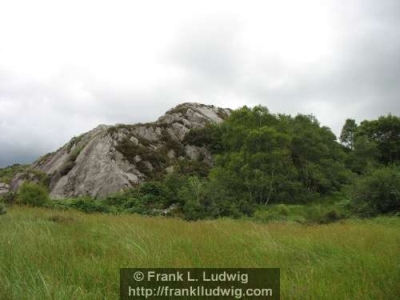  
|
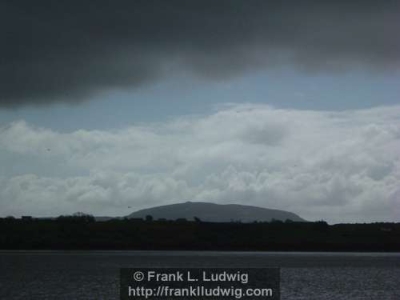  
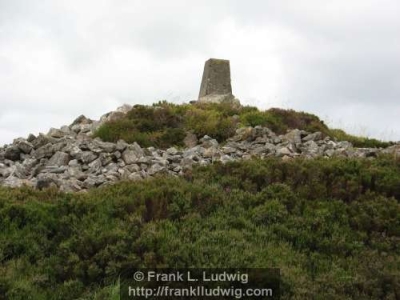  
|
The Host of the Air
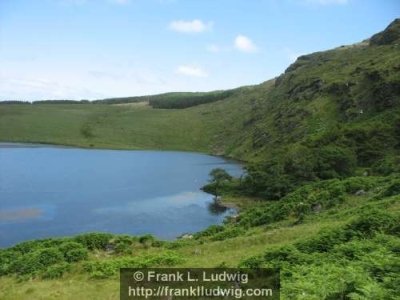  
Boulder at Hart Lake   |
The wild duck and the drake From the tall and the tufted reeds Of the drear Hart Lake.
And he saw how the reeds grew dark
He heard while he sang and dreamed
And he saw young men and young girls isle
The dancers crowded about him
But Bridget drew him by the sleeve
The bread and the wine had a doom,
He played with the merry old men
He bore her away in his arms,
O'Driscoll scattered the cards
But he heard high up in the air
Lough Achree (also Hart Lake or Heart Lake), formed by an earthquake in 1490 and probably Ireland's youngest lake, is said to be one of the numerous fairy portals around Sligo.
| 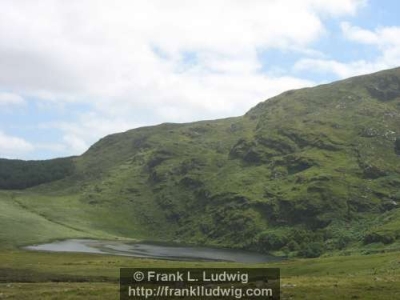  
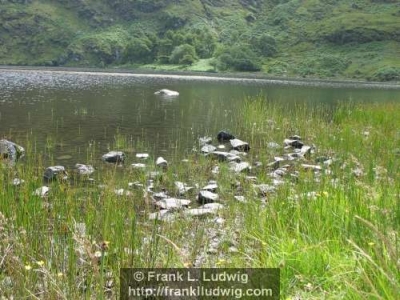  
Hart Lake   |
The Lake Isle of Innisfree
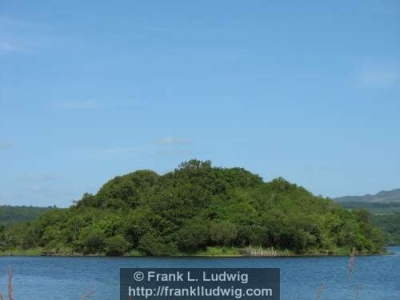   |
And a small cabin build there, of clay and wattles made; Nine bean rows will I have there, a hive for the honeybee, And live alone in the bee-loud glade.
And I shall have some peace there, for peace comes dropping slow,
I will arise and go now, for always night and day
|
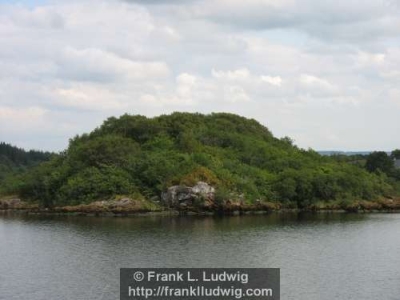  
|
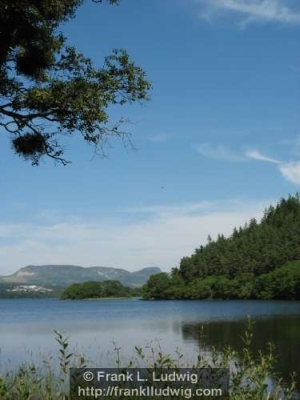   |
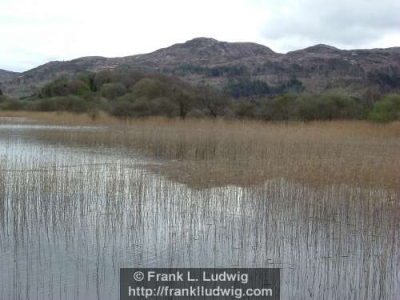   |
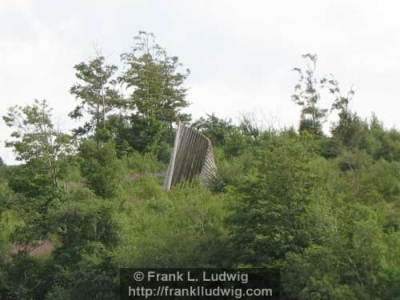 
|
The Man who dreamed of Faeryland
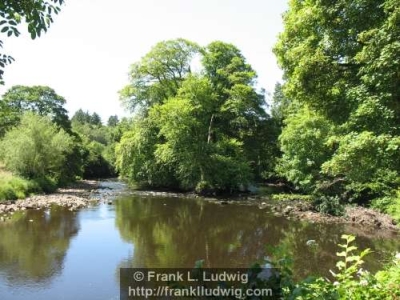   |
His heart hung all upon a silken dress, And he had known at last some tenderness, Before earth took him to her stony care; But when a man poured fish into a pile, It Seemed they raised their little silver heads, And sang what gold morning or evening sheds Upon a woven world-forgotten isle Where people love beside the ravelled seas; That Time can never mar a lover's vows Under that woven changeless roof of boughs: The singing shook him out of his new ease.
He wandered by the sands of Lissadell;
He mused beside the Well of Scanavin,
He slept under the Hill of Lugnagall;
|
the sands of Lissadell 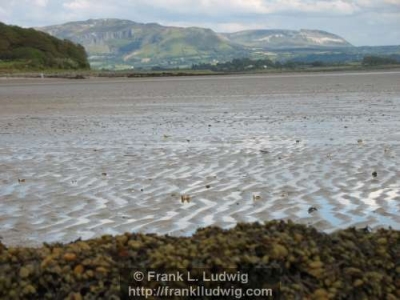  
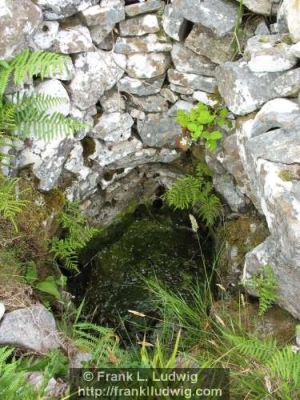  
Hill of Lugnagall 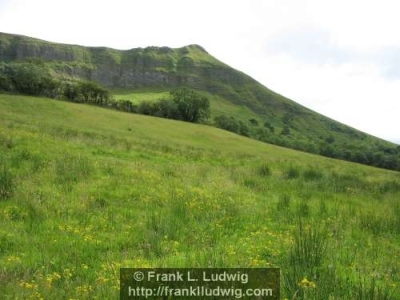  
|
The Song Of Wandering Aengus
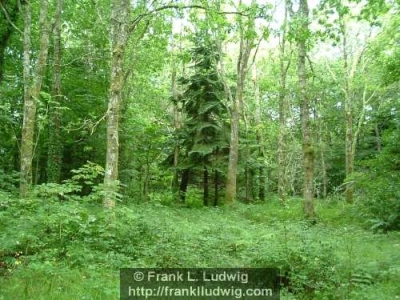  
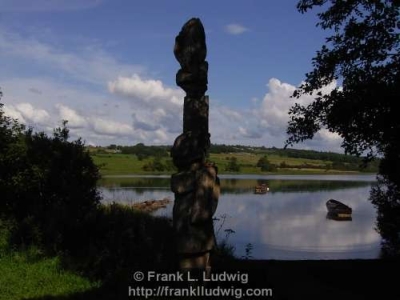  
|
Because a fire was in my head And cut and peeled a hazel wand, And hooked a berry to a thread; And when white moths were on the wing, And moth-like stars were flickering out, I dropped the berry in a stream And caught a little silver trout.
When I had laid it on the floor
Though I am old with wandering
|
at Hazelwood 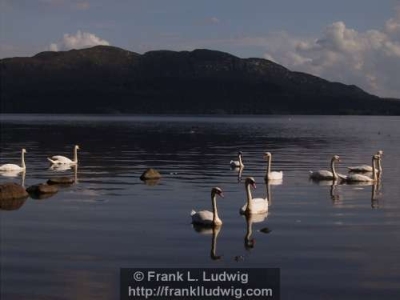  
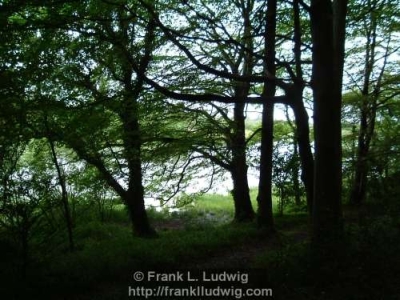  
|
|
Diarmuid and Grania's Bed 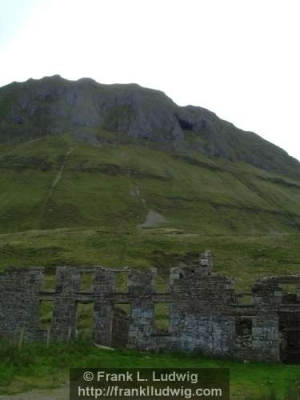  
|
(Sung by the people of Faery over Diarmuid and Grania, in their bridal sleep under a Cromlech)
WE who are old, old and gay, As they were on the run from her husband, Diarmait and Grainne (Diarmuid and Grania) are said to have spent the night in the shelter of a cave in Benbulben, known as Diarmait's (and Grainne's) Bed. |
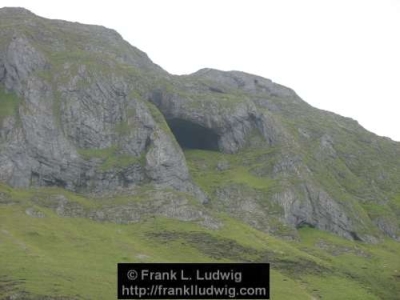  
|
The Fiddler of Dooney
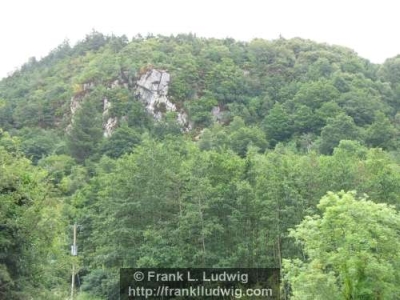  
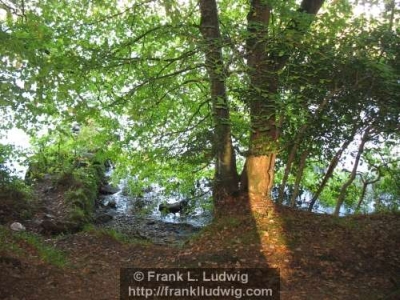  
|
Folk dance like a wave of the sea; My cousin is priest in Kilvarnet, My brother in Moharabuiee.
I passed my brother and cousin:
When we come at the end of time,
For the good are always the merry,
And when the folk there spy me,
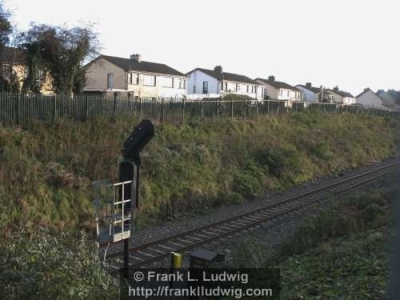  
| 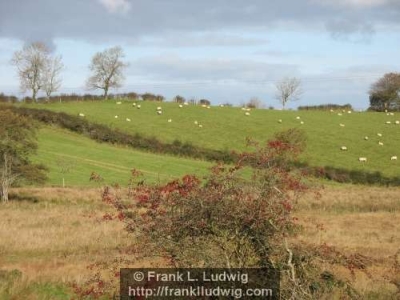  
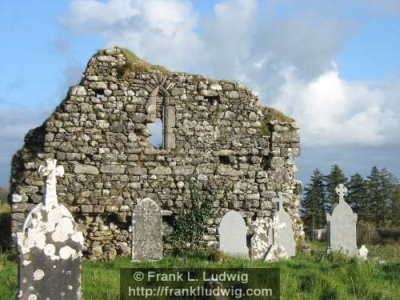  
|
The Ballad of Father O'Hart
(or The Priest of Colooney)
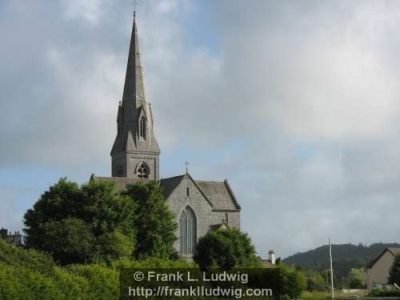  
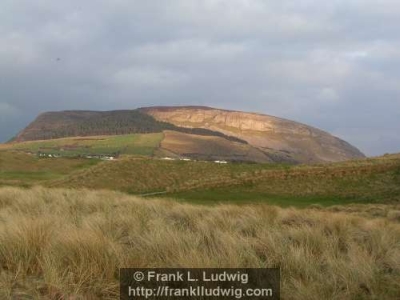  
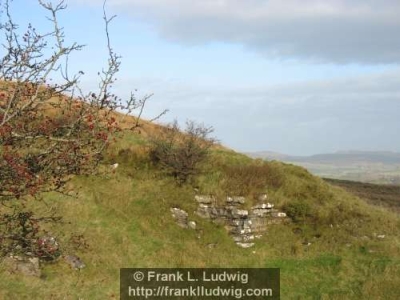  
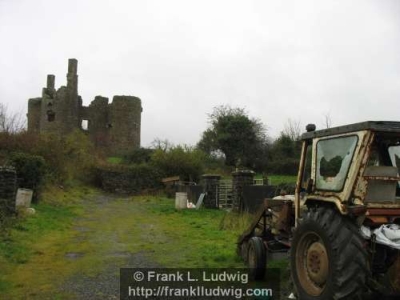  
|
In penal days rode out To a Shoneen who had free lands And his own snipe and trout.
In trust took he John's lands;
But Father John went up,
All loved him, only the shoneen,
The birds, for he opened their cages
But if when anyone died
And these were the works of John,
There was no human keening;
The young birds and old birds
Keening from Inishmurray.
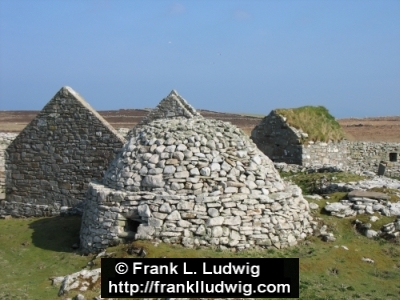  
|
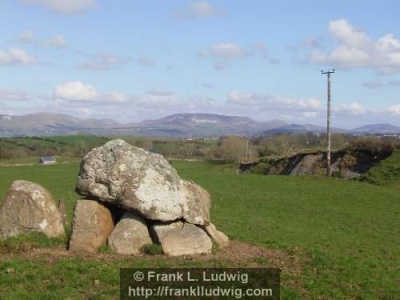  
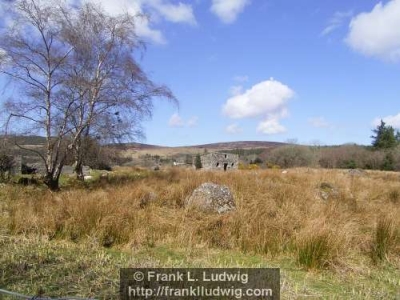  
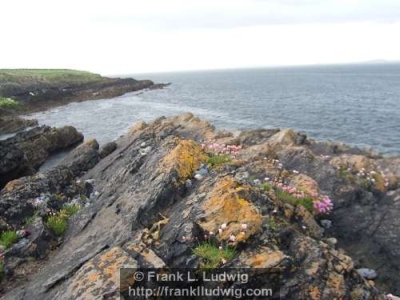  
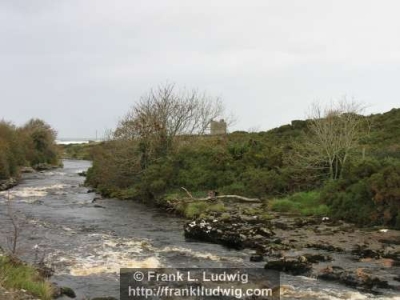  
|
The Hosting of the Sidhe
|
|
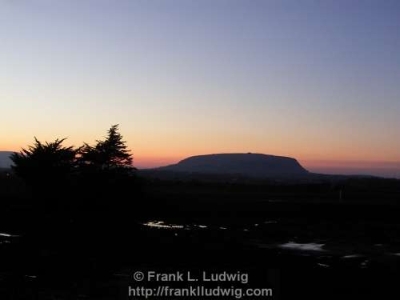  
|
And over the grave of Clooth-na-bare; Caolte tossing his burning hair, And Niamh calling, 'Away, come away; Empty your heart of its mortal dream. The winds awaken, the leaves whirl round, Our cheeks are pale, our hair is unbound, Our breasts are heaving, our eyes are a-gleam, Our arms are waving, our lips are apart, And if any gaze on our rushing band, We come between him and the deed of his hand, We come between him and the hope of his heart.' The host is rushing 'twixt night and day; And where is there hope or deed as fair? Caolte tossing his burning hair, And Niamh calling, 'Away, come away.'
| 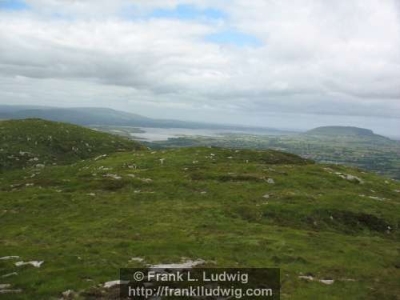  
|
The Wild Swans at Coole
In Memory Of Eva Gore-Booth And Con Markiewicz
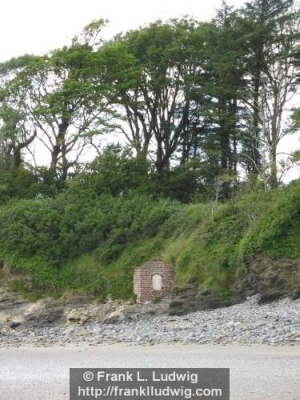   |
Great windows open to the south, Two girls in silk kimonos, both Beautiful, one a gazelle. But a raving autumn shears Blossom from the summer's wreath; The older is condemned to death, Pardoned, drags out lonely years Conspiring among the ignorant. I know not what the younger dreams - Some vague Utopia - and she seems, When withered old and skeleton-gaunt, An image of such politics. Many a time I think to seek One or the other out and speak Of that old Georgian mansion, mix pictures of the mind, recall That table and the talk of youth, Two girls in silk kimonos, both Beautiful, one a gazelle.
Dear shadows, now you know it all,
| (monument at Rathcormac) 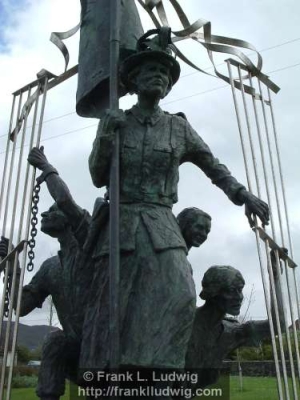  
|
Under Saturn
At the Hawk's Well
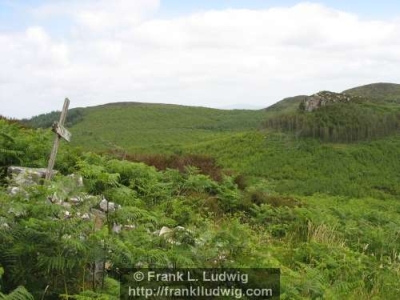   |
The Hawk's Well, also called Tubber Scanavin, can be found on top of Tullaghan Hill near Coolaney. Like all wells in Ireland, it is attributed to St Patrick, and even though the Ox Mountains stretch between the well and the sea, its water level rises and falls with the tide. Synopsis of the Play: The play is set by a dried up well on a desolate mountainside which is guarded by a hawk-like woman. An old man has kept camp there for fifty years, waiting to drink the miraculous waters from the well which occasionally rise up. Cuchulain arrives at the spot, having heard a story that the waters bring immortality. The Old Man urges Cuchulain to leave the well, telling of his wasted lifetime there and how, even when the waters did rise up, he was thwarted by a sudden urge to sleep. But Cuchulain is determined to stay and convinced that he shall soon drink the waters. While they speak of a hawk which had attacked Cuchulain earlier in the day, and which the old man claims is a supernatural being which carries a curse of discontent and violence, the Guardian of the Well seems to fall into a trance, arises, and begins to dance with hawk-like motions. She then leaves the stage as the well waters bubble up. Cuchulain pursues her, but unable to find her he returns to the well to be informed by the Old Man he has missed the waters. Oblivious, he rushes out again to face the warrior women the Guardian of the Well has called out to battle, ignoring the Old Man's pleas to stay with him. (Source: Wikipedia) |
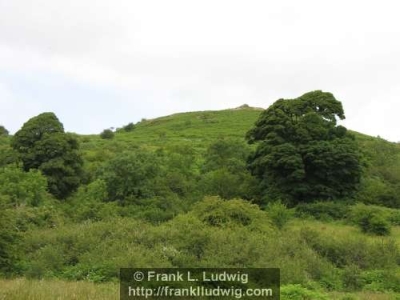   |
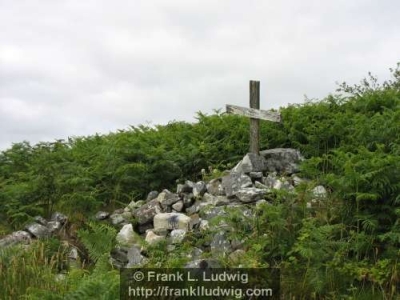   |
   |
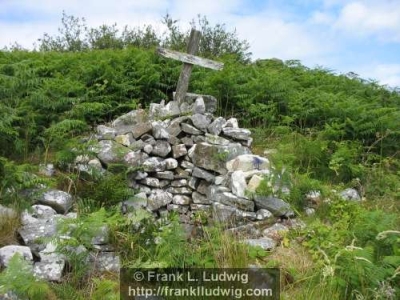   |
from The Untiring Ones
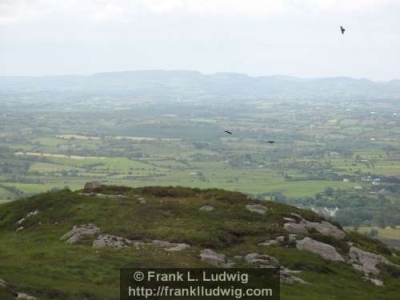  
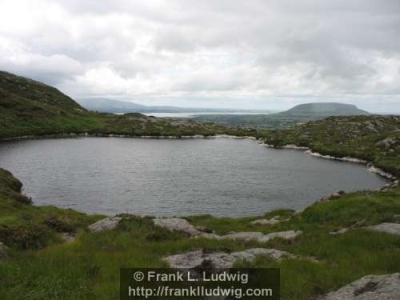  
|
...Such a mortal too was Clooth-na-bare, who went all over the world seeking a lake deep enough to drown her faery life, of which she had grown weary, leaping from hill to lake and lake to hill, and setting up a cairn of stones wherever her feet lighted, until at last she found the deepest water in the world in little Lough Ia, on the top of the Birds' Mountain at Sligo. There are two lakes on Bird's Mountain (Slieve Daeane); it is generally accepted that Yeats' Lough Ia is Lough Dagee (or Lough Dagea), but since it is even higher up on the mountain, I think he might be referring to Lough Lumman. Despite being also called Two Birds' Mountain, Slieve Daeane is actually guarded by three territorial falcons; as soon as I had moved on from the plateau to climb the first peak, they made their presence known by a noisy display of their flying skills. After that didn't scare me away, one of them followed me for three hours, circling high above my head and squawking abuse at me. Only when I started my descent from Lough Lumman did he finally retreat.
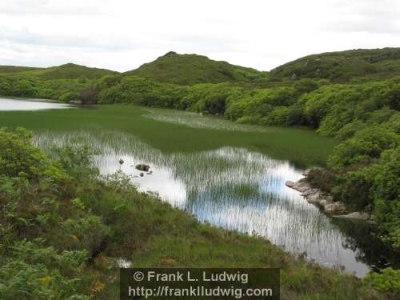  
|
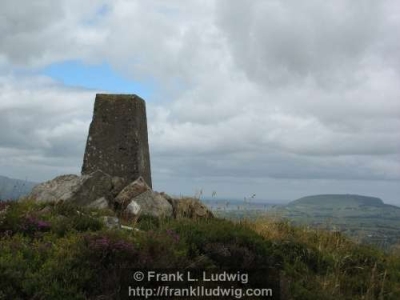  
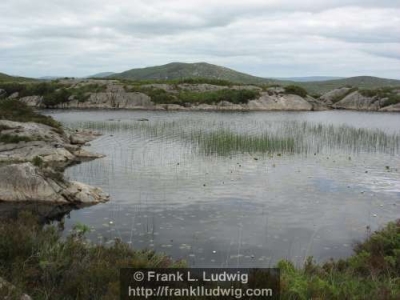   |
from Under Ben Bulben
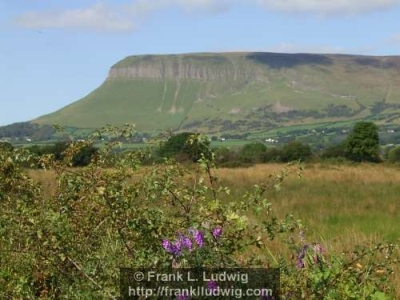   |
In Drumcliff churchyard Yeats is laid. An ancestor was rector there Long years ago, a church stands near, By the road an ancient cross. No marble, no conventional phrase; On limestone quarried near the spot By his command these words are cut:
Cast a cold eye
|
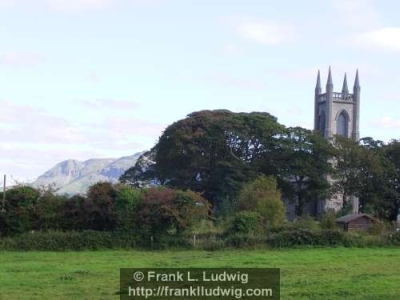  
|
   |
(Yeats' Grave) 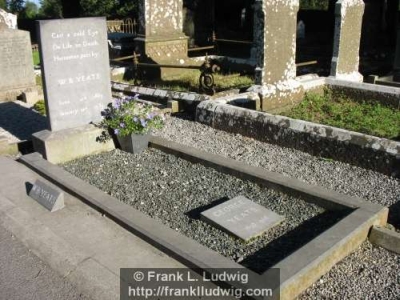   |
(Yeats' Grave) 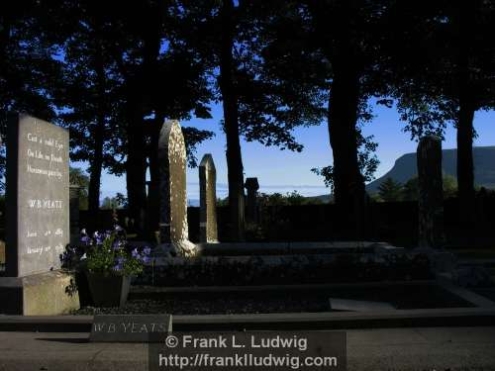    |
Elsinore Lodge
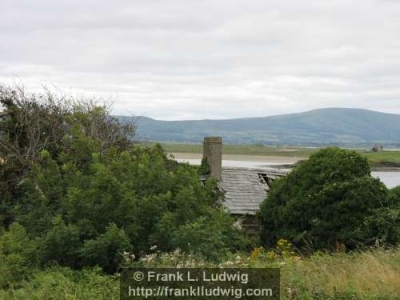   |
|
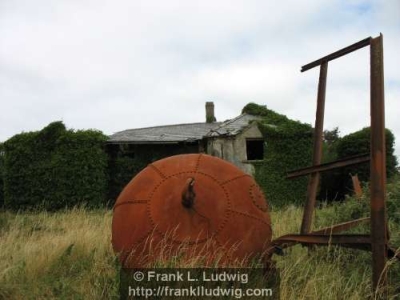  
|
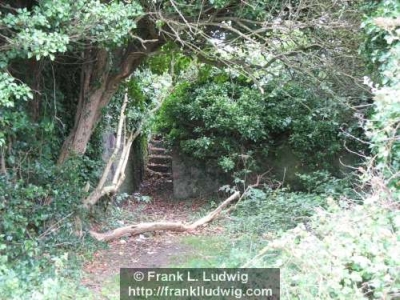  
|
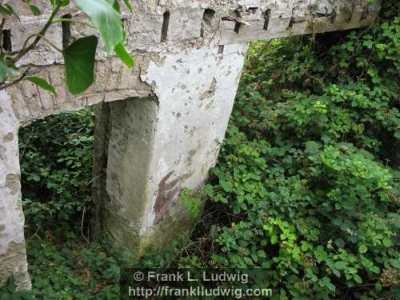  
|
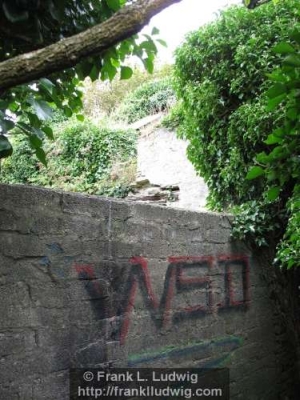  
|
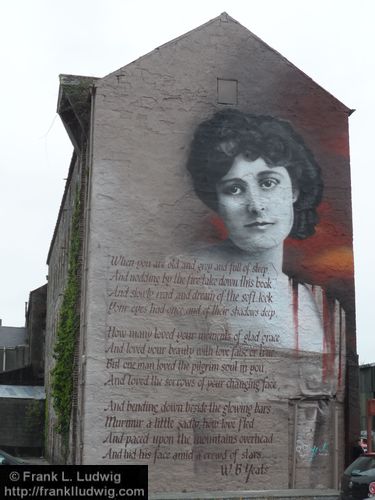
Maude Gonne Mural ('When you are old and grey...')
Did I miss anything? If you would like to see a location I haven't covered on this page, feel free to contact me at

|
 |
|
Yeats Facing His Memorial Building

|
